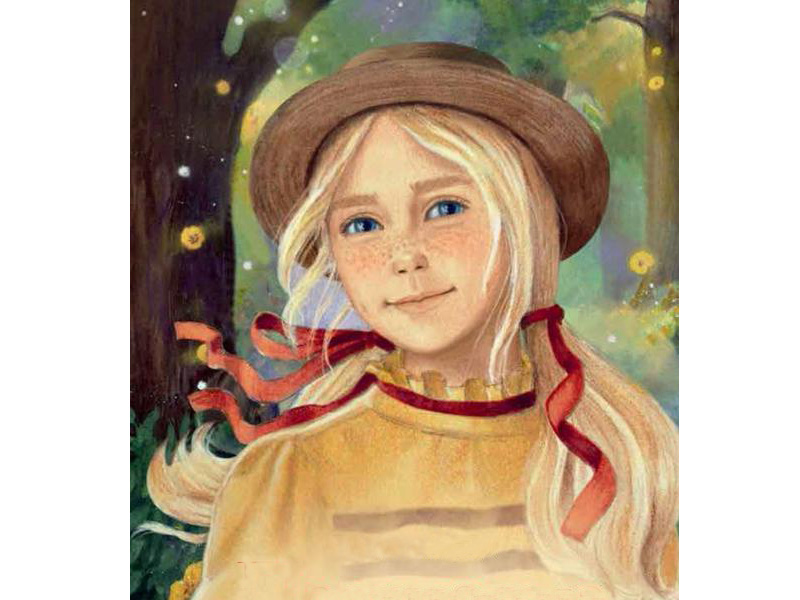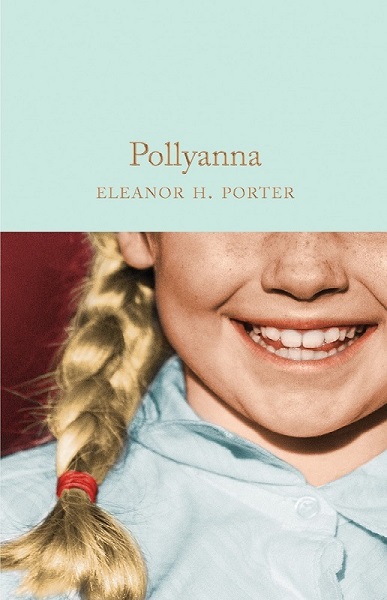
This past summer I read Pollyanna by Eleanor Porter [one of the recent editions: Macmillan Publishers, 2018. ISBN 9781509852246] and I can honestly say I enjoyed it more than any other book I’ve read recently. It was on the summer reading list, but I’d actually been meaning to read it myself for a while now. First, because I’d heard good things about the book, and second, because I’d already seen the movie. It turned out the book was a lot more complete than the film and tells the story in all its details. After I’d finished reading Pollyanna, my mom said it was written more as a girl’s book. But that doesn’t matter much from a reader’s perspective. I personally found a lot that was interesting and useful for me that I’d like to share now.

I learned from the preface that children and adults have been reading Pollyanna for over a hundred years! Just imagine what an impressive age and reputation that is!
There were other interesting facts: some parts of the story refer to Mark Twain’s Tom Sawyer. The author of Pollyanna loved books by the great American author, who was also her contemporary, so Pollyanna is a little like Tom. She has a straw hat, freckles, and light hair, just like him. And her aunt is also called Polly.
The introduction really impressed me and got me even more interested in the book.
Now onto the book itself.
I really like the author’s idea that you should look for (and can find!) gladness everywhere, and that finding gladness is a fun and interesting game. When Pollyanna says you should find the good in everything, she uses the following argument: in the Bible 800 verses say you should “be glad” and “rejoice.” I completely agree with Pollyanna’s belief that gladness plays a very important role in our lives. I decided to try to learn to find the positives in all kinds of situations, even when that’s hard. What’s so great in coming to school late, for example, or getting a bad grade on an essay? What’s the positive side of not getting your friend a present in time for the holidays? There are also times when you just can’t look for gladness: when people get in a fight, or someone hurts another or does something bad. Still, gladness can even save a person’s life. I’m guessing I’m not the first to try Pollyanna’s game. With her invention she was able to make people around her happy as if by magic.
The second thing that drew me in about the novel was this wonderful combination between a sweet plot idea—with seemingly unrealistic and fairytale-like characters, conflicts, dangers—and a story that is actually very realistic, about a real girl who lives in a real 19th century America and, like all kids, goes to school. Then, after her parents die, she moves in with a strict, proud, and seemingly uncaring aunt. The heroine has a long, difficult road ahead of her.
Overall this pretty normal story (imagine how many boys and girls are orphans, both then and now?) centers on eleven-year-old Pollyanna and rather normal, though sadly rare, human qualities: love, kindness, the ability to be happy, and help others.
Though these feelings and ideas have a Christian theme, since the author herself was Protestant, I think anyone will find them relatable, regardless of their faith or religion.
In the end, thanks to her virtues (compassion, charity, goodness, love, and cheerfulness), the girl is able to overcome and get through all the hardships, dangers, and adversity, despite being temporarily disabled. The story ended well for Pollyanna, and I was really glad.
Still, I was sad when I finished the book, so I was happy to later learn that there’s a sequel: Pollyanna Grows Up.
Ignat Varakin, 12
Translated from the Russian by Alisa Cherkasova
Article cover by Alexandra Liukkonen from a Russian edition of the book published by Kachelly publishing house
Book cover image: macmillan.com
Follow us on Facebook.
